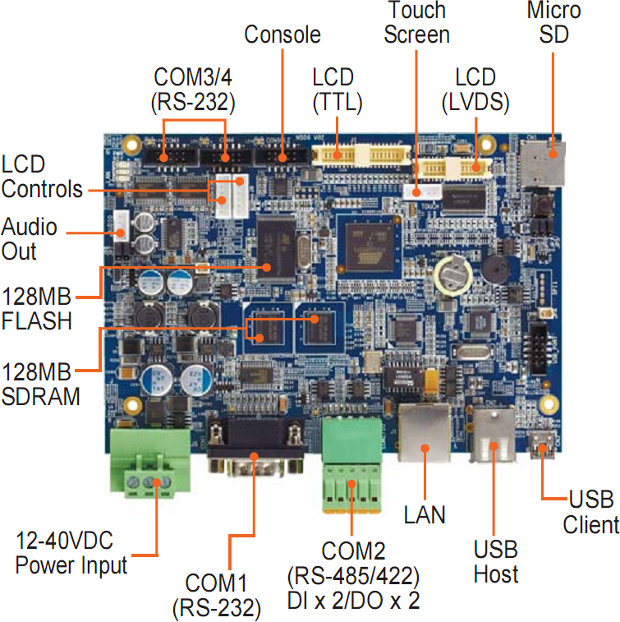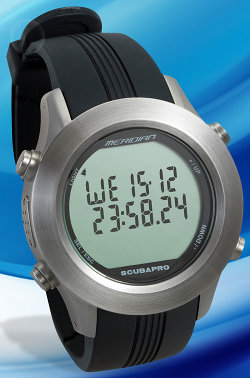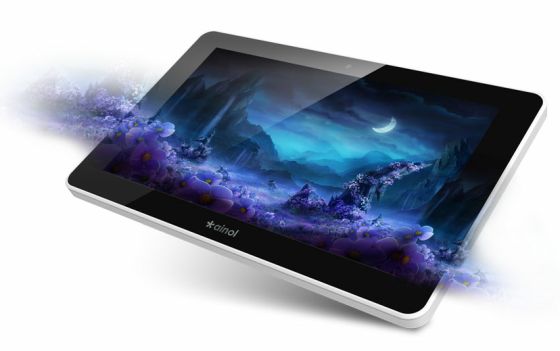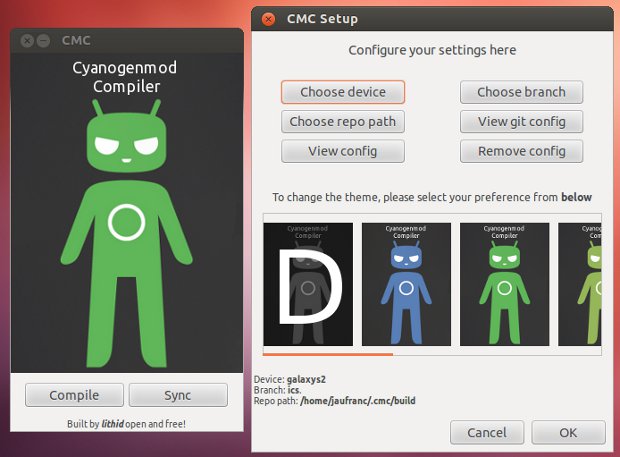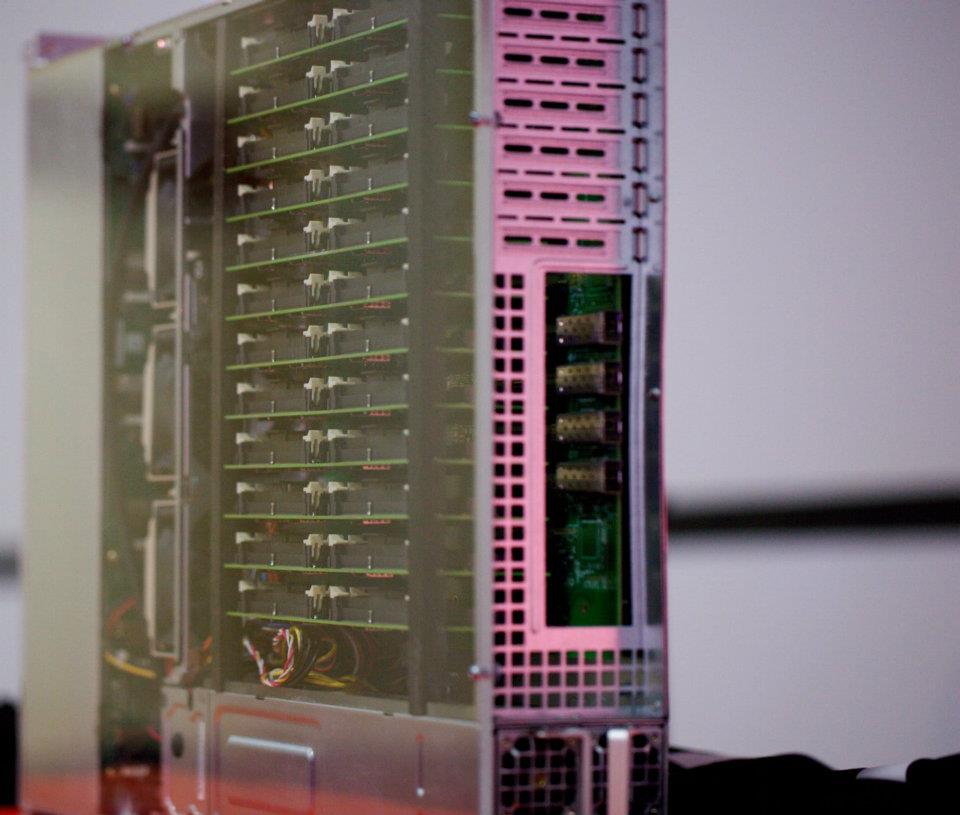Artila Electronics announced 2 new single board computers (SBC) based on Atmel SAM9G45 ARM9 Processor: Artila M-506 running Linux 2.6.38 Artila M-606 running Wince 6.0 Both models features the same hardware with a standard 3.5” form factor, Atmel AT91SAM9G45 Processor, 128MB DDR2 RAM, 128MB NAND Flash and 2MB DataFlash and only differ by the operating system and software used. The company explains that the board targets industrial application such as intelligent transportation system (ITS), building automation, energy-saving system, and scenario control systems. Here are the hardware specifications for both devices: CPU – ATMEL AT91SAM9G45 @ 400MHz Memory – 128MB SDRAM Flash – 128MB NAND & 2MB DataFlash for system recovery On-board TTL/LVDS LCD interface Supports 5V/12V TFT LCD panels, up to 1280 x 860 pixels Ethernet: 1x, 10/100Mbps COM port – 3x RS-232, 1x RS-422/485 USB Host – 4x USB 2.0 HS ports. Micro-SD Card – 16GB max. GPIO – […]
Huawei K3V2 Based MediaPad 10 FHD Tablet Hands-On Video
Earlier this year, Hisilicon – a subsidary of Huawei – unveiled the K3V2 quad-core Cortex A9 processor at Mobile World Congress and Huawei showcased the Ascend Quad D Android 4.0 smartphone as well as an high-end Android ICS Tablet based on this processor called Huawei MediaPad 10 (which nobody was allowed to use). This tablet features a 1920×1080 display with a 10-point touchscreen, 1GB RAM, 32 GB Flash and a 8MP rear camera together with a 1.3MP front camera. It also comes with a 6,600 mAh battery and is only 8.8mm thick. Huawei brought the device at CTIA 2012 and Engadget could shot an hands-on video of the MediaPad 10 FHD. No release date nor pricing is available, nevertheless it’s listed for 699.99 USD on Android-Sale.com. Jean-Luc Aufranc (CNXSoft)Jean-Luc started CNX Software in 2010 as a part-time endeavor, before quitting his job as a software engineering manager, and starting to […]
Tizen OS Running on Samsung Smartphone Reference Design (Video)
After Tizen 1.0 (codenamed Larkspur) release last week, a Samsung prototype was showcased at the Tizen Developer Conference on May 7-9 in San Francisco. The Samsung prototype fearures a 4.65 inch 1280 x 720p HD Super AMOLED display and runs Tizen on an Exyons? 1.2 Ghz dual core Cortex A9 chip with 1 GB of RAM. Vaibhav Sharma of The Handheld Blog, who has tried this developers’ reference design at the conference, shows us the main menu (similar to TouchWiz), system settings, the web browser (which scores 408 on HTML5Test.com), the picture gallery, the music player, youtube video playback etc… and it looks pretty smooth as shown in the hands-on video below. This is just a prototype, so performance will most likely be further improved once a Tizen smartphone is made available to the general public. Jean-Luc Aufranc (CNXSoft)Jean-Luc started CNX Software in 2010 as a part-time endeavor, before quitting his […]
SCUBAPRO-UWATEC Meridian Dive Computer Powered by EFM32 Gecko Cortex M3 MCU
SCUBAPRO-UWATEC and Energy Micro have unveiled the SCUBAPRO Meridian dive computer powered by Energy Micro EFM32 Gecko MCU. Meridian is a sophisticated dive computer in a watch design, powered by a CR2032 lithium battery. The companies claim the Meridian is the world’s first 32-bit dive watch-computer. It can operate at depths of up to 120 meters, incorporates an advanced diving algorithm, performs multi-gas decompression and features an heart rate monitor that enables adaptive workload calculations. The watch computer can be used both during diving, configured to display a variety of dive information including depth, dive time, decompression status and water temperature, and above the surface where it handles remaining desaturation time, no-fly time. Its built-in thermometer and altimeter can also be used for mountain treks. The MCU used in the Meridian is the Energy Micro EFM32G890 Gecko, a 32MHz 32-bit MCU based on ARM Cortex-M3 consuming 180µA/MHz is active mode […]
Ainol Novo 7 Aurora II Android 4.0 Tablet Features AMLogic AM8726-MX Cortex A9 Processor
Last week, I wrote about the Rockchip RK3066 based Cube U30GT Android 4.0 Tablet, and today I’ll blog about the Ainol Novo 7 Aurora II, one of the first Android 4.0 tablet powered by the new AMLogic AM8726-MX dual core Cortex A9 processor. Here are the specs of the device: CPU – AMLogic AM8726-M6 Cortex-A9 Dual Core processor @ 1.5 GHz GPU – Mali 400MP RAM – 1GB DDR3 Storage – 8 GB NAND Flash / microSD Card slot (Support up to 16GB) Display – 7″ capacitive touch screen (5-point) IPS LCD (1024×600) Camera: 2.0 MPixel front camera Sensors – 4-way G-sensor Connectivity – Wi-Fi b/g/n. 3G via external 3G/WCDMA dongle Battery – 3700mAh Dimensions – 187 x 111 x 12 mm Weight – 360 grams The Aurora II will be available later this month and sell for about 190 USD. The company will also offer the cheaper Novo 7 […]
IEEE Updates 802.11 Standard to Support 600Mb/s Wi-Fi and Approves 802.1aq Standard for Large Ethernet Networks
IEEE has recently announced a standard update for WiFi (802.11-2012) which adds support for 3.7 GHz bands, 600Mb/s throughput and mesh networking among other things, and approved 802.1aq Shortest Path Bridging standard, which will streamline the creation and management of large Local and Metropolitan Area networks by using the next-generation VLANs. IEEE Wi-Fi 802.11-2012 Standard IEEE 802.11-2012 is the 4th revision of the Wi-Fi standard. It has been expanded by supporting faster and more secure devices, while offering improved Quality of Service and cellular network hand-off. Key amendments to the standard: IEEE 802.11n now defines MAC and PHY modifications to enable throughput up to a maximum of 600Mb/s Direct-link setup “Fast roam” Radio resource measurement Operation in the 3650-3700MHz band Vehicular environments, mesh networking, security, broadcast/multicast and unicast data delivery Interworking with external networks and network management. IEEE 802.11 is available for purchase for $5 at the IEEE Standards Store. […]
Build Your Phone Android Distro with CyanogenMod Compiler 0.4 GUI (Cmc-pygtk) for Ubuntu
Lithid, a member of XDA Developers Forum, has recently released the 4th version of a GUI tool (Cmc-pygtk) to build Android for a given smartphone as long as it is supported by CM. The CyanogenMod Compiler is supported by Ubuntu 10.04 32/64-bit and greater, and you can either download a deb file or build it yourself by following the instructions below: Install dependencies:
|
1 2 3 4 |
sudo apt-get install build-essential devscripts ubuntu-dev-tools debhelper \ dh-make diff patch cdbs quilt gnupg fakeroot lintian pbuilder piuparts \ flex bison gperf libsdl1.2-dev libesd0-dev libwxgtk2.6-dev squashfs-tools \ libncurses5-dev zlib1g-dev openjdk-6-jdk pngcrush schedtool |
Clone the source tree:
|
1 |
git clone git://github.com/lithid/Cmc-pygtk.git |
Generate a gpg key:
|
1 |
keygpg --gen-key |
Delete the changelog or dpkg will use lithid key instead.:
|
1 2 |
cd Cmc-pygtk rm os-versions/common/changelog |
Edit the EMAIL field in the Makefile and replace it with the one used to generated the gpg key. Build it for your version of Ubuntu. For Ubuntu 12.04 32-bit:
|
1 |
make cmc-12.04-32 |
And install it:
|
1 2 |
cd out sudo dpkg -i cmc-12.04-32-v0.4.deb |
Before using CyanogenMod Compiler (CMC) is installed, you need to install google repo tool:
|
1 2 3 |
curl https://dl-ssl.google.com/dl/googlesource/git-repo/repo > repo chmod a+x repo sudo mv repo /usr/local/bin/repo |
Now that everything is setup, you can run CyanogenMod Compiler: cmc A disclaimer message telling […]
This is What a Calxeda 192-Core ARM Ubuntu 12.04 Server Looks Like
Last November, Calxeda announced its 32-bit ARM Chip for servers, and now there are been some good progress as Calxeda is currently showcasing a 192-core ARM Server running Ubuntu 12.04 LTS Server edition at the Ubuntu Developer Summit in Oakland, California. The server showcased has 192 cores (48 Calxeda EnergyCore quad core Cortex-A9 processors), consumes less than 300 Watts, supports up to 24 SATA drivers and runs Ubuntu 12.04 with OpenStack’s cloud management infrastructure. Karl Freund, Calxeda Vice President of Marketing said that the Calxeda server is running “a standard LAMP stack (running Calxeda’s website) along with other popular web frameworks such as node.js and Ruby on Rails, provisioning of OpenStack Nova compute instances, and even Canonical’s Metal-as-a-Service bare-metal provisioning.” The company also explained that a complete native build of the Ubuntu 12.04 kernel took less than an hour to build on a single node, 4 times faster than the […]


